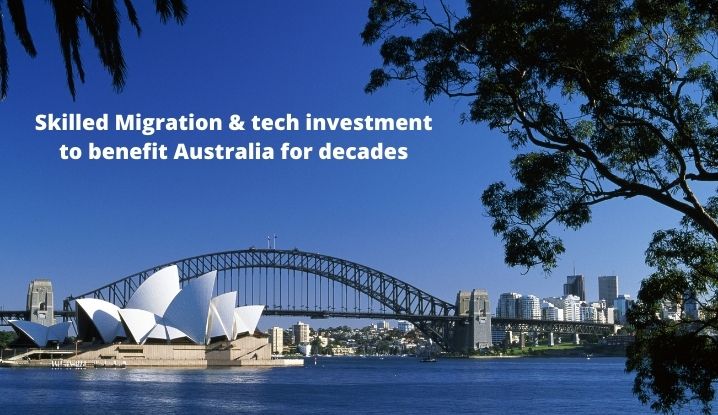Australia’s Treasurer Josh Frydenberg has said that continued investment in the tech sector and inviting skilled migrants to Australia can boost the country’s productivity levels for the next 40 years.
According to Mr Frydenberg, allowing for a greater number of skilled migrants to enter Australia, in addition to implementing policies that benefit further investment in technology, will see Australia’s productivity levels soar over the next four decades.
He also said that having a well-targeted and skills-focused migration system will allow Australia to boast a greater number of working-age residents, who will improve the economic and fiscal outcomes, and decelerate the transition to an older population.
To facilitate such benefits, Australia already has some initiatives in the works to attract skilled individuals and migrants who can bring capital to the country, he said.
Speaking at the presentation of the 2021 intergenerational report, Mr Frydenberg highlighted the importance of technology to Australia, and said that the approach of focusing on tech investments and skilled migration will position Australians to make hay of the opportunities lying in wait in the coming years.
He also stated that because of the coronavirus pandemic, the rate at which Australians have had to adapt to technology has accelerated, with digital platforms dominating the way in which Australians now have to work, communicate and shop.
Due to the emergence and convenience of digital services, investing more in digital technology, skills, new energy technology and Research and Development (R&D) can benefit Australia in the years to come, said Mr Frydenberg.
He also warned that due to the pandemic, Australia’s federal budget would remain in deficit over the next four decades through to 2060. Average economic growth would fall from 3 per cent to 2.6 per cent, and the ratio of Australia’s workforce to those aged over 65 would also fall to 2.7 from 4 over the same period.
However, Mr Frydenberg also went on to praise the Morrison government for introducing some new policies which have helped ‘soften the blow’, and support Australia’s goal of becoming a leading digital economy by 2030.
Among the policies appreciated by Mr Frydenberg are the new patent box in this year’s budget – which will encourage the commercialisation of innovation in Australia – and the AU$2 billion complement to the R&D tax incentive announced in last year’s budget.
The intergenerational report, which is released every five years, assesses the long-term sustainability of government policies, and examines how changes to the country’s population size and age profile could impact Australia’s economic growth, public finances, and workforce over the next four decades.
According to the report, Australia has suffered from a slower birth rate and lower migration levels due to the coronavirus pandemic, which is set to reduce the projected population to 38.8 million in 2060-61.
This figure shows a fall from the previous intergenerational report projection, where it was forecast that Australia’s expected population would be much closer to 40 million by 2054-55.






